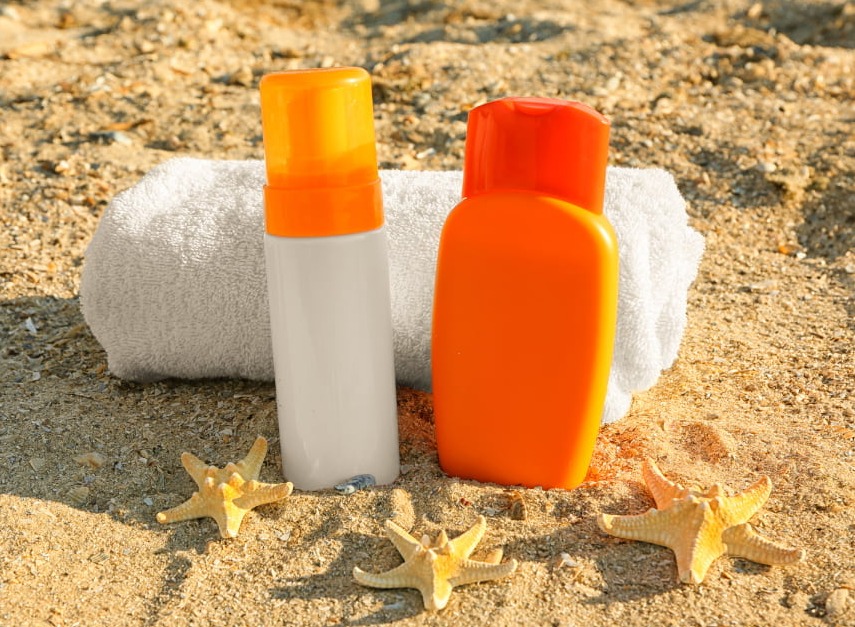- Home
- Forums
- General forums
- Good to know
- Heatwave: how to cope in hot weather?
Heatwave: how to cope in hot weather?
- 145 views
- 0 support
- 3 comments
All comments

wednesday
Good advisor
![]()
wednesday
Last activity on 31/07/2024 at 09:28
Joined in 2016
176 comments posted | 21 in the Good to know group
9 of their responses were helpful to members
Rewards
-
Good Advisor
-
Contributor
-
Committed
-
Explorer
-
Evaluator
-
Friend
Very good advice Thank you for sharing
See the signature
Pamela Greatorex

lesmal
AmbassadorGood advisor
![]()
lesmal
Ambassador
Last activity on 09/07/2025 at 11:10
Joined in 2018
1,493 comments posted | 144 in the Good to know group
73 of their responses were helpful to members
Rewards
-
Good Advisor
-
Contributor
-
Messenger
-
Committed
-
Explorer
-
Evaluator
Great advice; thank you for sharing all the tips and ways of coping in hot weather.
I must admit I don't enjoy the summer weather; my epilepsy is always worse and more seizures occur due to the humidity, exhaustion and more.
I've learnt over the years to stay out of the sun, and slow down in summer!
See the signature
Les

robjmckinney
AmbassadorGood advisor
![]()
robjmckinney
Ambassador
Last activity on 09/07/2025 at 00:51
Joined in 2015
627 comments posted | 104 in the Good to know group
59 of their responses were helpful to members
Rewards
-
Good Advisor
-
Contributor
-
Messenger
-
Committed
-
Explorer
-
Evaluator
Common sense as always, but many old people have experienced hot weather on a regular basis in their lives. Yes, carers and parents should monitor more often in any period of weather extremes. Our old and ill people face a more serious problem this winter coming when heating will be an issue for many. Planning as always is essential to keep cool in summer and warm in winter. Now is the time we should be looking how we offset winter cold, on average we have less than 10,000 old people die of hypothermia in winter, it use to be 30,000 dead not too long ago. Stay safe!
See the signature
robjmckinney
Give your opinion
Survey
Articles to discover...
Subscribe
You wish to be notified of new comments
Your subscription has been taken into account








Margarita_k
Good advisor
Margarita_k
Last activity on 07/10/2020 at 11:39
Joined in 2016
1,195 comments posted | 118 in the Good to know group
2 of their responses were helpful to members
Rewards
Good Advisor
Contributor
Messenger
Committed
Explorer
Evaluator
Most of us welcome hot weather, but when it's too hot for too long there are health risks. If a heatwave hits this summer, make sure the hot weather doesn't harm you or anyone you know.
Why is a heatwave a problem?
The main risks posed by a heatwave are:
- dehydration (not having enough water)
- overheating, which can make symptoms worse for people who already have problems with their heart or breathing
- heat exhaustion and heatstroke
Who is most at risk?
A heatwave can affect anyone, but the most vulnerable people are:
- older people, especially those over 75
- babies and young children
- people with a serious chronic condition, especially heart or breathing problems
- people with mobility problems – for example, people with Parkinson's disease or who have had a stroke
- people with serious mental health problems
- people on certain medications, including those that affect sweating and temperature control
- people who misuse alcohol or drugs
- people who are physically active – for example, labourers or those doing sports
Level 1 alert: be prepared
The Meteorological Office has a warning system that issues alerts if a heatwave is likely. Level 1 is the minimum alert and is in place from June 1 until September 15 (which is the period that heatwave alerts are likely to be raised).
Although you don't have to do anything during a level 1 alert, it is advisable to be aware of what to do if the alert level is raised. Knowing how to keep cool during long periods of hot weather can help save lives.
Public Health England (PHE) has advice on how to stay safe during a heatwave.
Level 2 alert: heatwave is forecast
The Met Office raises an alert if there is a high chance that an average temperature of 30C by day and 15C overnight will occur over the next 2 to 3 days. These temperatures can have a significant effect on people's health if they last for at least 2 days and the night in between.
Although you don't need to take any immediate action, follow these steps in preparation:
- Stay tuned to the weather forecast on the radio, TV or social media, or the Met Office.
- If you're planning to travel, check the forecast at your destination.
- Learn how to keep cool at home with the beat the heat checklist.
Level 3 alert: when a heatwave is happening
This alert is triggered when the Met Office confirms there will be heatwave temperatures in one or more regions.
Follow the instructions for a level 2 alert. The following tips apply to everybody when it comes to keeping cool and comfortable, and reducing health risks.
Tips for coping in hot weather
- Shut windows and pull down the shades when it is hotter outside. You can open the windows for ventilation when it is cooler.
- Avoid the heat: stay out of the sun and don't go out between 11am and 3pm (the hottest part of the day) if you're vulnerable to the effects of heat.
- Keep rooms cool by using shades or reflective material outside the windows. If this isn't possible, use light-coloured curtains and keep them closed (metallic blinds and dark curtains can make the room hotter).
- Have cool baths or showers, and splash yourself with cool water.
- Drink cold drinks regularly, such as water and diluted fruit juice. Avoid excess alcohol, caffeine (tea, coffee and cola) or drinks high in sugar.
- Listen to alerts on the radio, TV and social media about keeping cool.
- Plan ahead to make sure you have enough supplies, such as food, water and any medications you need.
- Identify the coolest room in the house so you know where to go to keep cool.
- Wear loose, cool clothing, and a hat and sunglasses if you go outdoors.
- Check up on friends, relatives and neighbours who may be less able to look after themselves.
If you have concerns about an uncomfortably hot house that is affecting your health or someone else’s, get medical advice.
You can also get help from the environmental health office at your local authority. They can inspect a home for hazards to health, including excess heat. Visit GOV.UK to find your local authority.
Level 4 alert: severe heatwave
This is the highest heatwave alert in Britain. It is raised when a heatwave is severe and/or prolonged, and is an emergency situation.
At level 4, the health risks from a heatwave can affect fit and healthy people, and not just those in high-risk groups. These groups include the elderly, the very young and people with chronic medical conditions.
Follow the information given above for a level 3 alert. Check that anyone around you who is in a high-risk group is coping with the heat.
How do I know if someone needs help?
Seek help from a GP or contact NHS 111 if someone is feeling unwell and shows symptoms of:
- breathlessness
- chest pain
- confusion
- intense thirst
- weakness
- dizziness
- cramps which get worse or don't go away
Get the person somewhere cool to rest. Give them plenty of fluids to drink.
Source: NHS